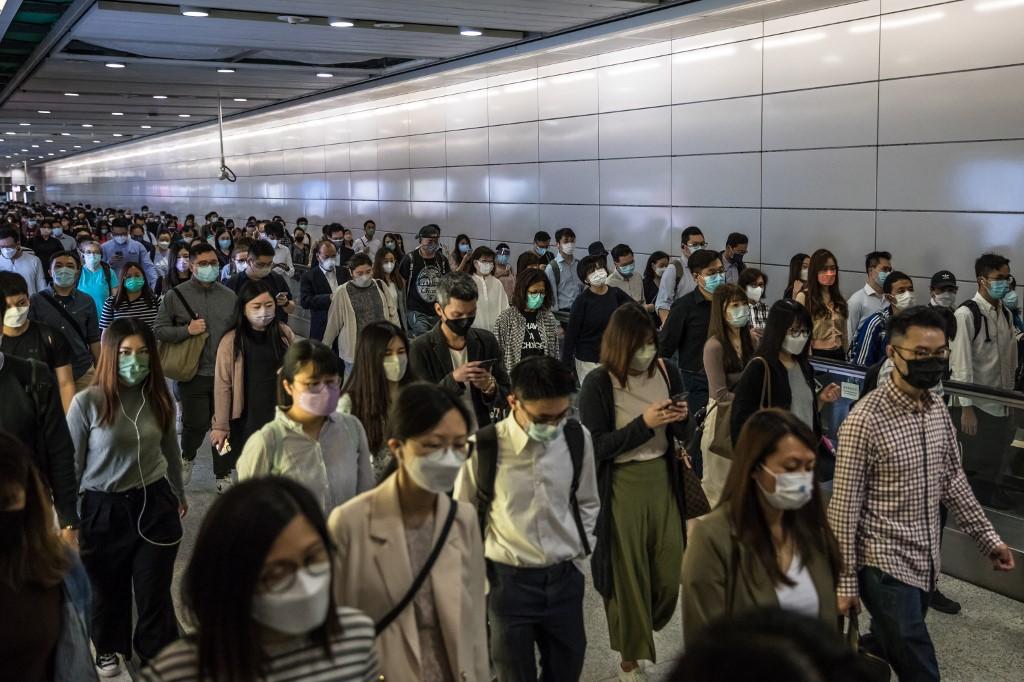Asian markets rise on talk Biden to roll back some China tariffs
With some of the tariffs due to expire soon, officials in Washington have been discussing the measures with an eye on inflation, which is sitting at four-decade highs.
Just In
Asian markets rose Tuesday on growing speculation US President Joe Biden is about to roll back some of the Trump-era tariffs on Chinese goods as he looks for ways to rein in inflation, though sentiment remains at a premium owing to fears of a recession.
The mood on trading floors has become increasingly gloomy in recent months as observers warn that sharp interest rate hikes aimed at curbing price rises could cause a contraction, compounding uncertainty caused by Russia’s war in Ukraine.
Still, equities were on the up Tuesday on talk that the White House is about to remove duties on some of the hundreds of billions of dollars worth of imports from China, with reports saying an announcement could come this week.
With some of the tariffs due to expire soon, officials in Washington have been discussing the measures with an eye on inflation, which is sitting at four-decade highs.
And in a sign that something could be on the cards, China’s state-run Xinhua news agency said Treasury Secretary Janet Yellen and Vice Premier Lui He had held discussions.
“The two sides agree that as the world economy is facing severe challenges, it is of great significance to strengthen macro-policy communication and coordination between China and the US,” it said.
“And jointly maintaining the stability of the global industrial and supply chains is in the interests of both countries and the whole world.”
Reports also said that Biden was considering launching new probes into industrial subsidies – allowing for more targeted measures in strategic areas – to appease China hawks.
Hong Kong, Shanghai, Tokyo, Sydney, Seoul, Taipei, Wellington, Manila and Jakarta were all in positive territory.
“Given that inflation remains the White House public enemy number one, (investors are) leaning toward a gradual rollback of some China tariffs as it would reduce end costs to US consumers,” said SPI Asset Management’s Stephen Innes.
However, some commentators said that while the removal of some tariffs would be widely welcomed by traders, they were unlikely to have a long-lasting effect on inflation.
“Markets are likely to react positively on a knee-jerk because at this point we are hungry for any signs of positive news,” Charu Chanana, of Saxo Capital Markets, said.
“But we don’t see the move impacting the global growth and inflation dynamics in a significant way.”
Oil prices rose on expectations that demand will continue to outstrip supplies as the Ukraine war rages with no sign of an end, while investors are keeping tabs on China as it sees fresh Covid outbreaks that have led to some cities being put into lockdown.
Months-long flare-ups in Shanghai and Beijing earlier in the year saw millions of people ordered to stay home, sending shockwaves through the domestic economy and battering supply chains.
“China is the real wildcard here: it’s going to be two steps forward, one step back,” said Australia & New Zealand Banking Group’s Daniel Hynes.
“A demand recovery in China could potentially offset weakness in developed economies as central banks tighten monetary policy.”
Subscribe to our newsletter
To be updated with all the latest news and analyses daily.
